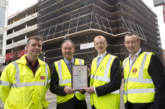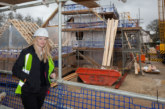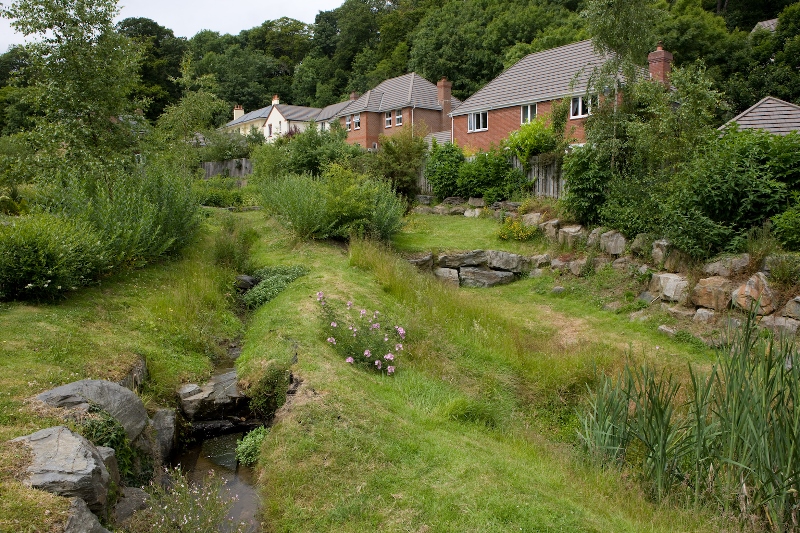
Paul Miller from Meadlfeet answers PHPD’s questions about the on-going management and maintenance of open spaces.
On-going management and maintenance of open spaces on a development can be a daunting prospect, especially with the range of sometimes complex requirements such as SuDS and ecological management plans. PHPD chats with Paul Miller from Meadfleet who explains some of the solutions available.
Q: If there is a requirement on a development for the long-term management and maintenance of open spaces, what are the options open to a developer?
There are three potential options available to developers, the first of these being local authority adoption. Whilst this does still take place, the extent to which councils are able to adopt land has reduced over recent years due to difficulties in financing long term maintenance.
The second option is to create a Residents Management Company (RMC). In this model developers and residents become directors of the RMC and oversee a managing agent who is responsible for the day to day maintenance of the open spaces. This option does place a significant legal and administrative burden on any directors of the RMC and often fails due to apathy or a lack of agreement amongst residents.
The third option for developers is a land-owning management company such as Meadfleet. This method offers a no-hassle option to housebuilders by relieving them of costly commuted sum payments or onerous Resident Management Company burdens. Meadfleet have the in-house expertise to manage all aspects of open space requirements and maintain sites to a quality that will reflect positively on the developer. By taking transfer of the land, we relieve developers and residents of any ongoing responsibilities, allowing the housebuilder to move on to their next project.
Q: What are the key issues to be aware of when deciding on which approach to take?
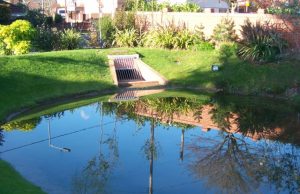 One of the key issues to consider for the developer is their legacy; the quality of open spaces on a development will reflect on the builder for years to come so they must consider the best way to protect their reputation by ensuring quality maintenance for the lifetime of the scheme.
One of the key issues to consider for the developer is their legacy; the quality of open spaces on a development will reflect on the builder for years to come so they must consider the best way to protect their reputation by ensuring quality maintenance for the lifetime of the scheme.
Another important factor is the requirements of the development, for example, if there are any engineering features such as Sustainable Drainage Systems, these will need expert ongoing management.
We recognise that housebuilders want to focus on what they do best and move on to their next project as soon as possible, so it is important they find a solution that allows them to do this.
Q: What solutions can Meadfleet provide and how are they financed?
Meadfleet offer developers a simple solution; by taking ownership of the land we take full responsibility of the requirements of the public open space, managing areas sensitively and professionally.
Our business model ensures developments are maintained in perpetuity, guaranteeing the upkeep of the open space and the legacy of the housebuilder.
Meadfleet charge residents in arrears, ensuring they only pay for works completed. We don’t charge developers any set-up fees.
Q: Can children’s play areas and items like SUDs schemes be included?
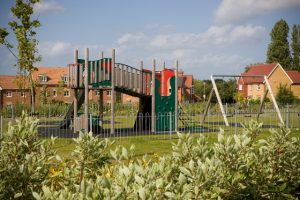 Yes, Meadfleet can cover any requirements that are part of a development’s open spaces. Whether this is the long-term management of Sustainable Drainage Systems (SuDS), protected species such as Great Crested Newts, water treatment works, street lighting, complex soft landscaping or play equipment.
Yes, Meadfleet can cover any requirements that are part of a development’s open spaces. Whether this is the long-term management of Sustainable Drainage Systems (SuDS), protected species such as Great Crested Newts, water treatment works, street lighting, complex soft landscaping or play equipment.
We create SuDS management plans to fulfil water authority requirements and in fact our model is often the preferred route to ensure expert management of these features in perpetuity.
With regards to play areas our regional managers are all qualified to RPII standards to regularly inspect playground equipment and in addition to this we arrange independent inspections to ensure equipment is safe and secure for children to enjoy.
Q: What levels of expertise does Meadfleet bring to the management of open spaces?
Managing and maintaining open space is all we do. Our team’s expertise and knowledge underpins our business with specialists in housebuilding, landscaping, horticulture and ecology.
My fellow directors and I have over 90 years’ experience in the housebuilding industry so we have a good understanding of the challenges facing developers in England and Wales. Our Technical Director oversees any engineering requirements and we also have an in-house ecologist ensuring we manage sites in accordance with ecological management plans and best practice.
Additionally, Meadfleet employ a network of regional managers who look after our sites across England and Wales. All hold relevant BSc or Masters degrees in subjects such as landscaping, horticulture and environmental science.
Q: How closely does the business work with residents on sites?
Meadfleet like to work side-by-side with groups of residents on their developments. Whether this is through a formal resident’s association or a less formal Meadfleet Liaison Group, we believe this creates a good flow of communication and allows us to gather feedback and act on resident’s requests. We provide guidance and assistance to any residents looking to form a resident’s group and we will work with them for the benefit of their development.
As a business we are keen to help foster community spirit and we encourage initiatives that assist with this. For example, Meadfleet regularly donate flowering bulbs to resident groups to plant together and provide bird nesting boxes for neighbours to install collectively to enrich their environment. We support and champion local nature projects, including supplying materials to children’s groups for activities such as building bug hotels or caring for hedgehogs.
Meadfleet strive to help residents enjoy their open spaces, of course each site is different, but by listening to our residents we do what we can to make a difference.
Paul Miller is Managing Director at Meadfleet. www.meadfleet.co.uk



